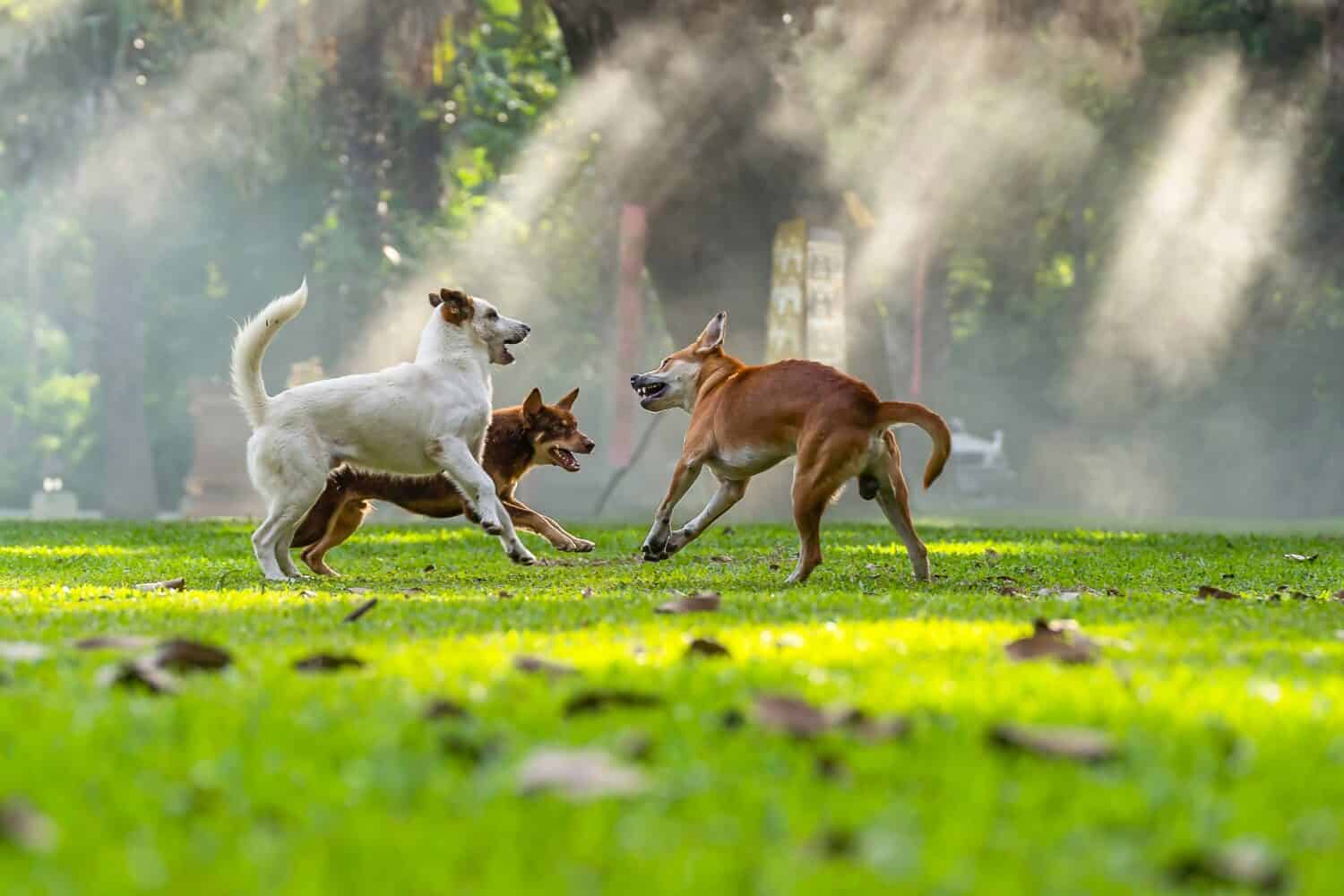Looking for ways to unclog your dog is an exercise in anxiety. All you can do is watch as your best friend is clearly uncomfortable, circling the same spot repeatedly. Their appetites decrease. They squat and do nothing—sometimes even whining a little as they do so.
Vomiting, sudden weight loss, and dragging their bottom along the ground are signs of constipation as well. It’s painful to watch; even when you have the cure in your hands, it takes time before it has an effect. The good news is, at least there’s a cure, both from a prescription medicine and a home remedy standpoint.
Though it may be nearly as rough on you to watch your furry friend go through something it probably doesn’t understand, these eight remedies will help it get the mail moving again while providing you with some peace of mind.
1. Enemas
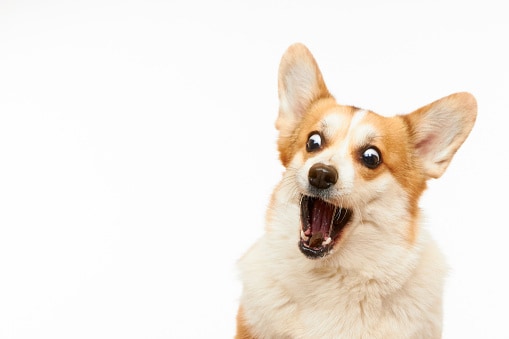
Surprise!
©Anton Zainchkovsky/iStock via Getty Images
We might as well start with the worst of the bunch, mostly because your dog won’t like it. Fortunately, an enema should be conducted by your veterinarian, since the stuff going up their rectum can also be poisonous if not administered correctly.
There are plenty of DIY instructions throughout the internet but, if you feel even the slightest bit of discomfort, don’t hesitate to take your dog to the vet to get it done. The vet will administer the Docusate Sodium Sulfosuccinate via tube syringe and the results are quick.
You can purchase Docusate Sodium Sulfosuccinate without a prescription but you will only find it in oral solutions, which is nowhere near as rapid as an enema.
2. Switch to a Low-Residue Diet

Dog eating chicken feet
©kalyanby/Shutterstock.com
Switching your pup to a low-residue diet is an option after your pup successfully has a bowel movement. For the most part, this is also a vet option if you don’t know much about the different types of foods and diets safe for a dog’s short-term and long-term health.
If you want to go it alone, avoid so-called, low-residue dry dog foods. The purpose of low-residue foods is to get your dog the maximum amount of nutrition so the body does a lot more absorbing and far less wasting. This gives your dog’s digestion system time to regulate itself again.
Also, after clearing out constipation, your pup is likely to be a bit dehydrated, something that dry dog foods will only exacerbate. At the very least, you should talk to your vet and get a good idea of what to purchase. Low-residue foods typically include white rice, chicken and chicken fat, cooked carrots, cooked pasta, green beans, and sweet potatoes without the skin.
3. Coconut Oil
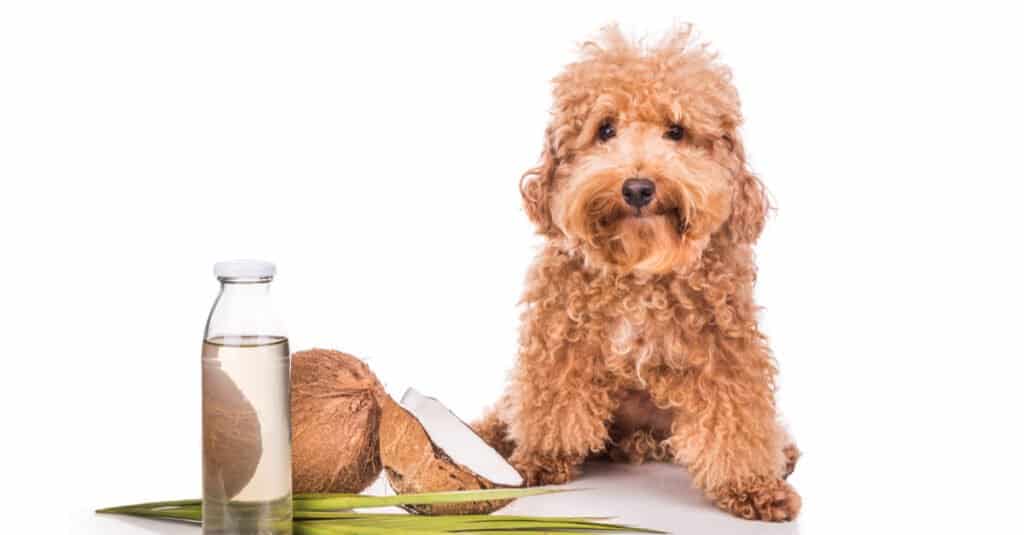
A small amount of coconut oil per day is an excellent canine laxative.
©ThamKC/Shutterstock.com
Coconut oil is one of the best natural ways to unclog your dog. Not only is it great for use as a natural laxative, but it’s also good as a skin protectant, dental health, antimicrobial properties, and increases your good cholesterol.
It also has many side uses in dogs as well, including improving their skin, eliminating dog odor, increasing their metabolic function, and helping older dogs deal with arthritis. As a stool softener, all you need to do is add a spoonful to your pup’s food bowl in the mornings.
Don’t administer in the evenings as it might expedite a bowel movement while you’re sleeping—not a good thing to wake up to. Since it has anti-inflammatory properties as well, it will help your pup with any bowel inflammation that’s resulting from constipation.
4. Apple Cider Vinegar
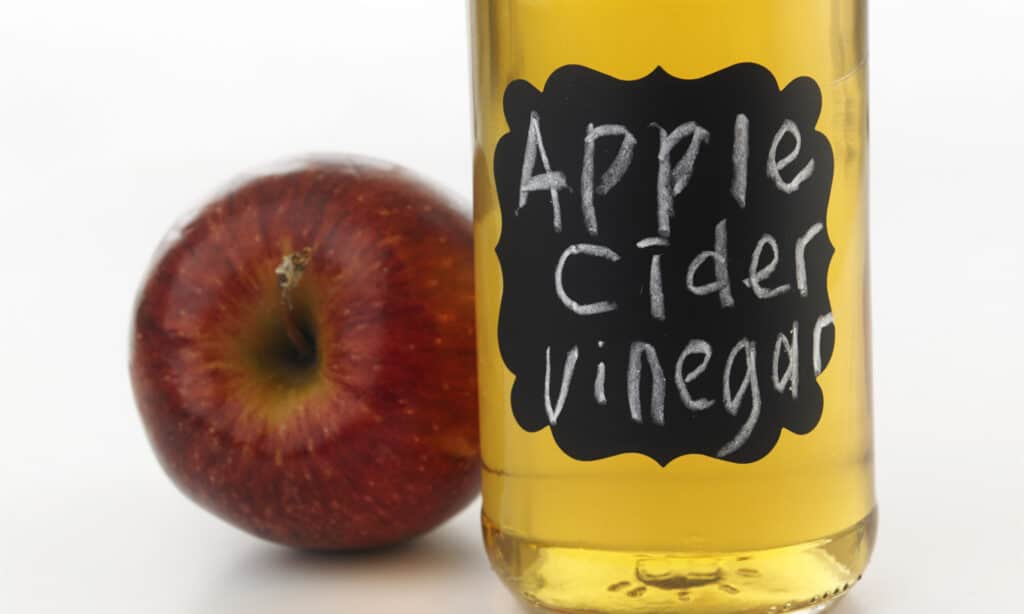
©focal point/Shutterstock.com
This is more of a helpful aid in the process of eliminating constipation in your dog. Apple cider vinegar acts as a positive probiotic, replacing the garbage in your pup’s gut with something better than what caused the problem in the first place. It’s also an effective way to remove and prevent fleas by spraying it on your dog’s coat.
The only problem with apple cider vinegar is the acrid aroma and taste, both of which your dog will probably reject wholeheartedly. While we can’t blame your furry friend for that, we can recommend putting a capful of apple cider vinegar in the water bowl.
It’s also good when mixed with yogurt. However, if you give your dog yogurt, avoid the highly processed nonsense that’s full of dyes and other additives. Stick with Seven Stars Yogurt, Happy Belly Greek Yogurt, or Chobani Non-Fat Greek Yogurt.
5. Leafy Greens
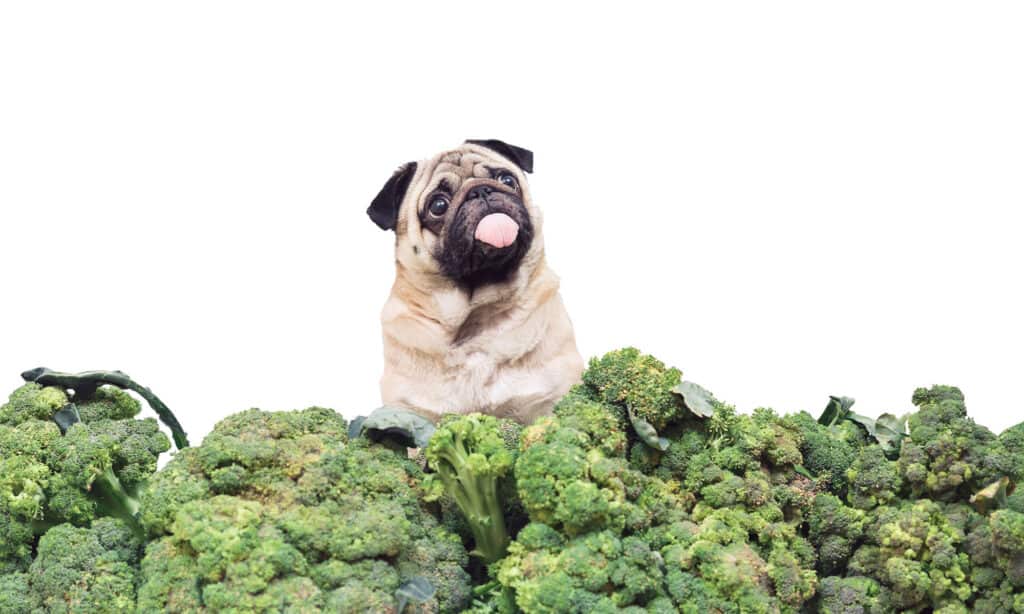
Broccoli is chock-full of vitamins and nutrients and is good for dogs in moderation.
©MarinaVarnava/Shutterstock.com
Yes, low-residue diets are the way to go if you want long-term success when treating your dog’s constipation issues. However, high-fiber, leafy greens are the better bet in the middle of the battle, not long after the dust settles.
The leafy greens will help your four-legged companion get the mail moving while the low-residue diet will sustain it in the long run. On the bright side, there are a lot of leafy greens to choose from and some of the high-fiber choices below are not leafy or green.
- A handful of raspberries
- A can of green beans (preferably organic)
- Kelp
- A cup full of broccoli
- Sliced apples (skin on)
- Carrots finely sliced
- Half a cup of blueberries (save some for yourself too!)
6. Pumpkin Puree
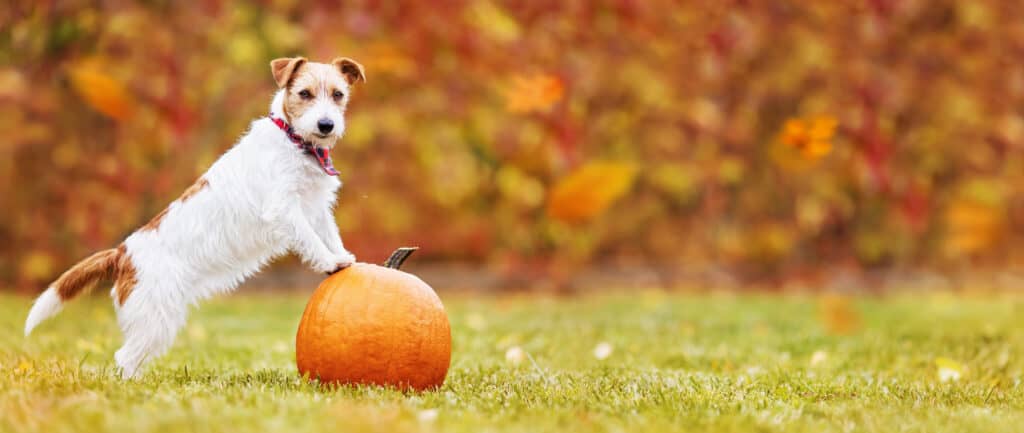
Puppy standing on a pumpkin in Autumn.
©iStock.com/wavetop
Pumpkin puree could also go in the leafy greens column, however, it’s more than enough all on its own. Depending on the size of your dog, one to four tablespoons in their daily food is sufficient. Pumpkin is one of the best, natural ways to unclog your dog, thanks to its dual purpose.
First, it’s very moist. The more water your puppy has, the more it will help to soften their stool, making it easier to pass. Plus, moist food is just better for dogs in the long run. Second, the highly soluble fiber content gets things moving on its own.
It certainly helps that most dogs don’t mind the taste of pumpkin puree and will happily gobble it down along with the rest of their food.
7. Olive Oil
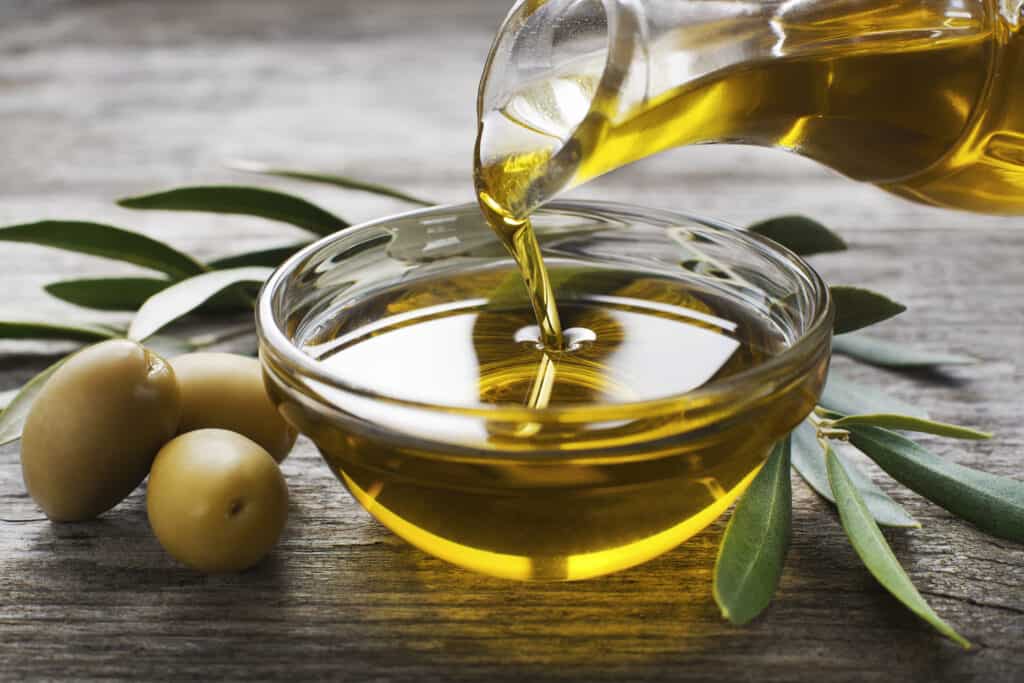
Olives and olive oil, in safe quantities, can provide Omega-3 oils to dogs.
©Dusan Zidar/Shutterstock.com
Olive oil is pretty effective in its own right and it is mostly on the same level as coconut oil. As a natural laxative, it’s pretty effective, but it also contributes to your pup’s health in several other ways. As an oil, it helps to lubricate the passages and soften the stool, making it easier for your dog to have a bowel movement and clean themselves out.
Olive oil is also very good for your dog’s skin. While it lacks some of the antimicrobial and odor-killing effects of coconut oil, it’s supposedly an effective cancer deterrent as well. Like the coconut oil, all you need to do is add a tablespoon of olive oil to your dog’s food and the oil will do the rest.
8. Water, Water, and More Water
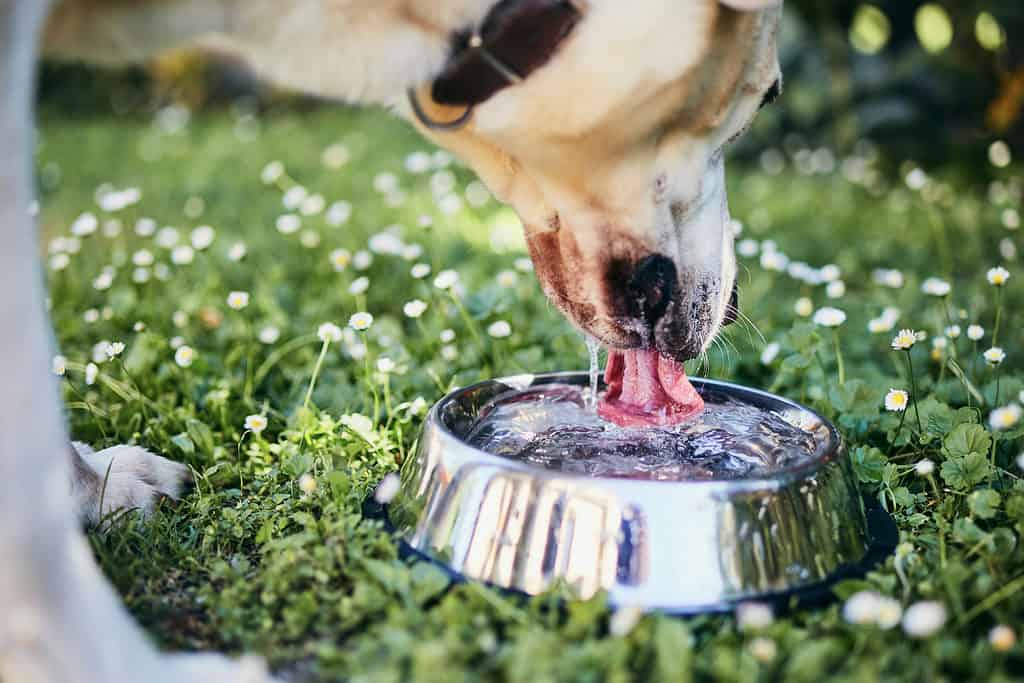
©Jaromir Chalabala/Shutterstock.com
In many ways, dogs are no different than human beings. When people suffer from diarrhea and constipation, doctors always recommend more water. The body uses water to flush the colon and, as a happy side effect, it helps soften and loosen stool.
While water is not the end-all-be-all cure for constipation, it should coincide with every other treatment option on this list. Of course, you can’t make your poor puppy get up and drink water. Fortunately, you probably won’t have to. Dogs instinctively know what’s best for them when it comes to water, rest, and healing.
The only thing dogs can’t do is gather everything they need for themselves. That’s where you come in with your handy dandy dog bowl full of fresh, clean water.
Final Thoughts On Ways To Unclog Your Dog and Stop Constipation
One of the things that never gets mentioned on lists of ways to unclog your dog, is preventative maintenance. One way to help your puppy with constipation is to provide it with a diet that doesn’t lead to constipation in the first place. While all of the above are excellent natural and prescription methods for relieving constipation, some can be used to prevent it as well.
If you feed your dog dry food, for instance, add a cup of water and allow it to get soggy. The more water the better. Make sure your puppy is getting the nutrition it needs on a daily basis and unfortunate clogs will be the least of your concerns down the road.
Ready to discover the top 10 cutest dog breeds in the entire world?
How about the fastest dogs, the largest dogs and those that are -- quite frankly -- just the kindest dogs on the planet? Each day, AZ Animals sends out lists just like this to our thousands of email subscribers. And the best part? It's FREE. Join today by entering your email below.
Thank you for reading! Have some feedback for us? Contact the AZ Animals editorial team.

